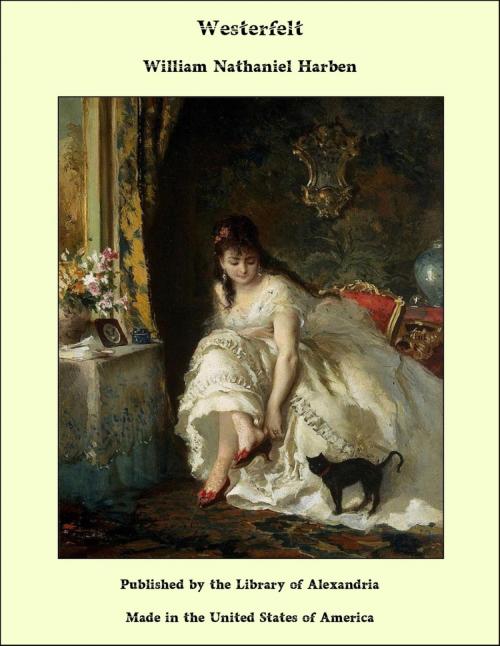| Author: | William Nathaniel Harben | ISBN: | 9781465623317 |
| Publisher: | Library of Alexandria | Publication: | March 8, 2015 |
| Imprint: | Language: | English |
| Author: | William Nathaniel Harben |
| ISBN: | 9781465623317 |
| Publisher: | Library of Alexandria |
| Publication: | March 8, 2015 |
| Imprint: | |
| Language: | English |
They had had a quilting at the house of the two sisters that day. Six or seven women of the neighborhood, of middle age or older, had been in to sew on the glaring, varicolored square. All day long they had thrust their needles up and down and gossiped in their slow, insinuating way, pausing only at noon to move their chairs to the dinner-table, where they sat with the same set curves to their backs. The sun had gone down behind the mountain and the workers had departed, some traversing the fields and others disappearing by invisible paths in the near-by wood. The two sisters had taken the finished quilt from its wooden frame, and were carefully ironing out the wrinkles preparatory to adding it to the useless stack of its kind in the corner of the room. "I believe, as I'm alive, that it's the purtiest one yet," remarked Mrs. Slogan. "Leastwise, I hain't seed narry one to beat it. Folks talks mightily about Mis' Lithicum's last one, but I never did have any use fer yaller buff, spliced in with indigo an' deep red. I wisht they was goin' to have the Fair this year; ef I didn't send this un I'm a liar." Mrs. Slogan was a childless married woman of past sixty. Her sister, Mrs. Dawson, had the softer face of the two, which, perhaps, was due to her having suffered much and to the companionship of a daughter whom she loved. She was shorter than her sister by several inches, and had a small, wrinkled face, thin, gray hair, and a decided stoop. Some people said she had acquired the stoop in bending so constantly over her husband's bed during his last protracted illness. Others affirmed that her sister was slowly nagging the life out of her, and simply because she had been blessed with that which had been denied her—a daughter. Be this as it may, everybody who knew Mrs. Slogan knew that she never lost an opportunity to find fault with the girl, who was considered quite pretty and had really a gentle, lovable disposition.
They had had a quilting at the house of the two sisters that day. Six or seven women of the neighborhood, of middle age or older, had been in to sew on the glaring, varicolored square. All day long they had thrust their needles up and down and gossiped in their slow, insinuating way, pausing only at noon to move their chairs to the dinner-table, where they sat with the same set curves to their backs. The sun had gone down behind the mountain and the workers had departed, some traversing the fields and others disappearing by invisible paths in the near-by wood. The two sisters had taken the finished quilt from its wooden frame, and were carefully ironing out the wrinkles preparatory to adding it to the useless stack of its kind in the corner of the room. "I believe, as I'm alive, that it's the purtiest one yet," remarked Mrs. Slogan. "Leastwise, I hain't seed narry one to beat it. Folks talks mightily about Mis' Lithicum's last one, but I never did have any use fer yaller buff, spliced in with indigo an' deep red. I wisht they was goin' to have the Fair this year; ef I didn't send this un I'm a liar." Mrs. Slogan was a childless married woman of past sixty. Her sister, Mrs. Dawson, had the softer face of the two, which, perhaps, was due to her having suffered much and to the companionship of a daughter whom she loved. She was shorter than her sister by several inches, and had a small, wrinkled face, thin, gray hair, and a decided stoop. Some people said she had acquired the stoop in bending so constantly over her husband's bed during his last protracted illness. Others affirmed that her sister was slowly nagging the life out of her, and simply because she had been blessed with that which had been denied her—a daughter. Be this as it may, everybody who knew Mrs. Slogan knew that she never lost an opportunity to find fault with the girl, who was considered quite pretty and had really a gentle, lovable disposition.















